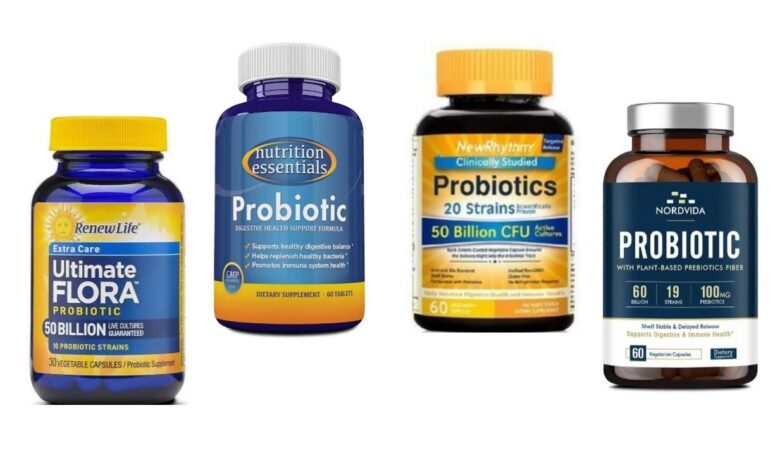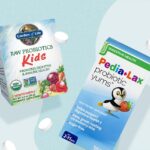What Happens When You Stop Taking Probiotics?

What are probiotics?
Probiotics are a combination of live beneficial bacteria and/or yeasts that naturally live in your body. Bacteria is usually viewed in a negative light as something that makes you sick. However, you have two kinds of bacteria constantly in and on your body — good bacteria and bad bacteria. Probiotics are made up of good bacteria that help keep your body healthy and working well. This good bacteria helps you in many ways, including fighting off bad bacteria when you have too much of it, helping you feel better.
Probiotics are part of a larger picture concerning bacteria and your body — your microbiome. Think of a microbiome as a diverse community of organisms, such as a forest, that work together to keep your body healthy. This community is made up of things called microbes. You have trillions of microbes on and in your body. These microbes are a combination of:
- Bacteria.
- Fungi (including yeasts).
- Viruses.
- Protozoa.
Everyone’s microbiome is unique. No two people have the same microbial cells — even twins are different.
You can get probiotics from supplements, as well as from foods prepared by bacterial fermentation. For a microbe to be called a probiotic, it must have several characteristics. These include being able to:
- Be isolated from a human.
- Survive in your intestine after ingestion (being eaten).
- Have a proven benefit to you.
- Be safely consumed.
Having the right gut bacteria has been linked to numerous health benefits, including the following:
- weight loss
- improved digestion
- enhanced immune function
- healthier skin
- reduced risk of some diseases
Probiotics, which are a certain type of friendly bacteria, provide health benefits when eaten.
What Happens When You Stop Taking Probiotics?
When you stop taking probiotics as supplements or foods, the microflora in your gut will gradually return to their pre-supplementation state after about one to three weeks. However, studies indicate that stopping probiotics abruptly can result in an increased risk of infections.
Research shows that certain microbes in the gut can affect your brain, these bacteria are part of an emerging field called “psychobiotics”. Research indicates that psychobiotics can help treat cognitive and neurological disorders, such as autism, Alzheimer’s disease, and Parkinson’s disease. Stopping psychobiotics in a person with any of these conditions can lead to a rapid progression of the disease or worsening of symptoms.
What are the side effects of probiotics?
Though taking probiotics may provide various benefits, it can also cause side effects, including:
Antibiotic resistance: Rarely, probiotic bacteria can contain antibiotic-resistant genes. They can pass these genes on to other strains of bacteria, including the harmful strains that cause infections. However, manufacturers systematically test commercial probiotic strains for the presence of antibiotic resistance. To reduce the risk of consuming antibiotic-resistant bacteria, always source probiotics from trusted, reputable manufacturers.
Digestive symptoms: A person may experience gas and bloating when first using probiotics. When first using probiotics, some people experience gas, bloating, or diarrhea. Changes in the gut microbiota can result in bacteria producing more gas than usual, which can lead to bloating.
However, these side effects usually clear up within a few days or weeks of taking the probiotics. If the symptoms persist, speak with a doctor, who can explore the possible causes. In some cases, the doctor may recommend switching to a different probiotic.
Increased risk of infection: Although probiotics are generally safe to use, findings of a review from 2017 suggest that children and adults with severe illnesses or compromised immune systems should avoid using probiotics. Some people with these conditions have experienced bacterial or fungal infections as a result of probiotic use. If a person has a condition that affects their immune system, they should speak with their doctor before taking probiotics. Also, anyone using antifungal medication should wait until the infection has cleared up before taking probiotics.
Skin problems: In rare cases, probiotics may cause skin rashes or itchiness. Authors of a 2018 review found that two study participants who took probiotics to treat IBS reported an itchy rash as a side effect. This led one participant to drop out of the trial. If a rash or severe itching occurs, stop using the probiotic. Check the product’s labeling for any possible allergens, and see a doctor if the rash is severe, persistent, or it accompanies other concerning symptoms. Once the rash has cleared, a person can try a different product or strain of probiotics.
Allergy risk: Anyone with an allergy or intolerance for gluten, soy, eggs, dairy, or lactose may need to exercise caution when choosing probiotics. As with any supplement, always check ingredients lists to ensure that there is no risk of an allergic reaction. Some manufacturers offer allergen-free probiotics. Anyone experiencing symptoms of an allergic reaction should stop using the probiotic immediately. Seek medical care if the reaction is severe.
Small intestine bacterial overgrowth (SIBO): The small and large intestines usually contain different types of bacteria. SIBO occurs when bacteria from the large intestine start growing in the small intestine.
The large intestine predominantly contains anaerobic bacteria, which do not require oxygen and live by fermenting indigestible carbohydrates from plant-based foods as they pass through the gut.
Symptoms of SIBO are similar to those of IBS, including gas, bloating, and diarrhea. SIBO can also cause brain fogginess and short-term memory problems.
Not everyone with IBS has SIBO, but overgrowth is more common in people with IBS. SIBO also frequently develops in older females.
Experts do not fully understand what causes the overgrowth, but it may result from reduced gut motility, which slows the passage of food through the gut. This can cause fermentable carbohydrates to remain in the small intestine for longer.
Results of a 2018 study indicate a possible link between SIBO and probiotic supplementation in people with brain fogginess. The researchers found that symptoms improved when participants stopped taking probiotics and started taking antibiotics.
You may find useful information on Do Probiotics Expire?





